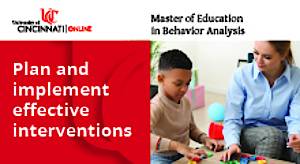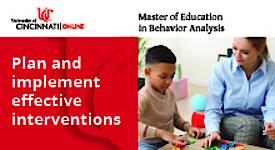Week in Review - October 2, 2020
NASET
WEEK IN REVIEW
National Association of Special Education Teachers
October 2, 2020 Vol 16 Issue #39
Dear NASET Members and Guests,
Welcome to NASET's WEEK in REVIEW. Here, we provide you with the latest publications fromNASET to read and or download, as well as some of the most interesting articles that have happened this week in the field of special education. We hope you enjoy this publication. Feel free to send us articles for this publication or let us know your thoughts about the WEEK in REVIEW at news@naset.org. Have a great weekend.
Sincerely,
WHATS NEW AT NASET
October 2020 - Special Educator e-Journal
Table of Contents
- Special Education Legal Alert. By Perry A. Zirkel
- COVID-19 Guidance and Case Law: Early Fall Update. By Perry A. Zirkel
- Buzz from the Hub
- How Early Experiences in Cognitive Development Improve Working Memory and Processing Speed Skills of Children. By Heather Dube, B.A., and Sarah Sarette, Ed.D.
- Critically Thinking about Disability: Portrait of an Introductory Special Education Course. Dr. Sarah M. Hart
- Book Reviews
- Hacking Leadership: 10 Ways Great Leaders Inspire Learning That Teachers, Students, and Parents Love. By Carol Krigger
- Book Review: Exploring Citizenship Leadership. By Fany Ferrufino
- Book Review: Lead Like a PIRATE: Make School Amazing for Your Students and Staff. By Elizabeth A. Moore
- Latest Employment Opportunities Posted on NASET
- Acknowledgements
Prenatal Cannabis Exposure Associated with Adverse Outcomes During Middle Childhood
While cannabis use during pregnancy is on the rise, researchers at Washington University in St. Louis have found evidence that the resulting children are more likely to have psychopathology in middle childhood. The team's analysis are the first steps in studying the effects of cannabis on children as attitudes surrounding its use change rapidly -- recreational adult cannabis use is now legal in 11 states and the District of Columbia. Patterns of usage, too, are changing; one of the fastest-growing subsets of cannabis users may come as a surprise: The pregnant. "There have been increasingly permissive and lenient attitudes toward cannabis use among pregnant people," said Sarah Paul, a clinical psychology graduate student. "It has skyrocketed in the past few years," she added, with data indicating a quick rise from 3% to 7% past-month use. Read More
Risk for Autism Increased With Preterm, Post-term Birth
Preterm and post-term birth are associated with an increased risk for autism spectrum disorder (ASD), according to a study published online Sept. 22 in PLOS Medicine. Martina Persson, M.D., Ph.D., from the Karolinska Institutet in Stockholm, and colleagues examined the risk for ASD across the range of gestational ages (GAs) while adjusting for sex and size for GA. Children were followed from birth for a clinical diagnosis of ASD. Data were included for 3,526,174 singletons born from 1995 to 2015, including 1.44 percent with ASD. The researchers found that 4.7 percent of the cohort were born preterm. The relative risk for ASD increased by each week of GA from 40 weeks to 24 weeks (preterm) and from 40 weeks to 44 weeks (post-term). Read More
College Students with Disabilities at Higher Risk of Drug Abuse: Study
College students with physical and cognitive disabilities have a higher prevalence of drug use disorder, than their non-disabled peers, according to a study by researchers at Rutgers University in the US. The study, published in the journal Disability and Health Journal, gives new understanding to the risk factors for substance use in students with disabilities and will help develop more effective prevention and treatment strategies. “Our findings suggest that health care providers be aware of the risk of drug misuse when treating college students with disabilities, particularly when prescribing medications that may lead to abuse or dependence,” said Judith Graber, Associate Professor at Rutgers School of Public Health. Read More
Why the U.S. Ranks 12th for Online Learning Access
The U.S. was not as well-equipped for the massive COVID shift to online learning, with families paying more for internet service and fewer owning home computers than families on other nations. The U.S. rank 12th for digital infrastructure in an analysis of 30 countries by Preply, an online tutoring platform. Among the study’s key findings: Only 72% of U.S. students have a home computer, compared to 91.7% in the UK and 85.6% in Canada. U.S. ranks low for government spending on education per pupil, at 19.4% of GDP per capita. The U.S. has 9,303 online learning courses—more than Canada, New Zealand, Australia, and the UK combined. Read More
Tech Struggles During COVID-19 Hurting Students' Ability to Learn, Educators Say
Educators have big concerns about how unequal internet access is hurting students' ability to learn, as millions switch to virtual education in the midst of the COVID-19 pandemic, according to a new report released Thursday by the RAND Corporation, a research organization. Teachers say they have difficulty reaching all their students in the online environment, that many are not completing their work, and that it is tough to hold kids accountable. What's more, teachers who work with a high percentage of students in poverty say that their kids were less likely to have a reliable internet connection at home. Read More
Transition to Adult Healthcare is Often Challenging for Children with Autism
Adolescents with autism are the least likely among young people with mental, behavioral and developmental conditions to receive guidance from their doctor on the shift from pediatric to adult healthcare, according to a new study by the United States Centers for Disease Control and Prevention (CDC). Only about 9 percent of autistic adolescents received transition planning, compared with about 20 percent of those with emotional conditions and 15 percent of those with behavioral conditions. This nationally representative study is the first to focus on transition healthcare planning for children with specific mental, behavioral and developmental disorders (MBDDs), says lead investigator Rebecca Leeb, a health scientist at the CDC National Center on Birth Defects and Developmental Disabilities. Read More

Smartphone App for Diagnosing Autism Could Soon Win FDA Approval
A system that uses A.I. to identify people with autism spectrum disorder (ASD) is in the process of being submitted to the FDA, and could become a valuable tool for primary care pediatricians in diagnosing autism. Its creators hope that it will help children with autism to be identified younger, thereby getting them the assistance they need sooner. “Based on parent or pediatrician concern, a pediatrician would prescribe Cognoa’s parent-facing mobile application,” Dave Happel, CEO of Cognoa, told Digital Trends. “Once in the app, the parent answers a 10- to 15-minute questionnaire about their child’s behavioral patterns, then uploads two home videos of the child capturing their behavior in a natural environment. The videos are sent to a trained professional, who observes [them] and answers questions about their observations, which is fed into Cognoa’s algorithms. In addition, the pediatrician answers a questionnaire about the child’s behavior.” Read More
Tacoma Children with Special Needs Being Treated Unfairly by District COVID Plans, Complaint Says
Parents of special education students in Tacoma have filed a complaint about decisions the district has made during the coronavirus pandemic, asking the Office of the Superintendent of Public Instruction to intervene. Kristin Luippold and her husband are members of the Tacoma Special Needs PTA. The citizen complaint sent through their attorney Monday to OSPI says they’re “representing the interests of all special education students in the Tacoma School District who are assigned a 1:1 paraeducator in their (individualized education programs), parents in the District who have received little to no communication about when their students’ special education services will be provided, and who have had decisions made cutting special education services outside of the IEP team process and without Prior Written Notice and procedural safeguards.” Read More
Distance Learning Supports for Students with Disabilities and English Learners
The shift to distance learning due to the coronavirus pandemic in spring of 2020 created access and language barriers for some of D.C.’s most vulnerable students, including students with disabilities and English learners. In that time, what obstacles did educators face when supporting students with special education and language learning needs during distance learning? What steps can educators take in the future to serve these students more effectively? The federal Individuals with Disabilities Education Act (IDEA) requires schools to educate students with disabilities in a manner that meets each student’s needs. It mandates that eligible students receive an Individualized Education Program (IEP), a customized plan that outlines the services they are required to receive. When distance learning began in the spring, some educators struggled to teach students with disabilities, believing that federal disability law presented an insurmountable barrier to remote education. Read More
Students with Disabilities are Struggling to Learn Online. These New Programs Aim to Help
The COVID-19 outbreak, and the subsequent pivot to virtual schooling that districts around the state had to embrace, has been a universal challenge. Families with children who have disabilities, though, say that their struggles are unique and up to this point haven’t been adequately addressed. Six months into the pandemic, though, families may start seeing some relief. Northern Arizona University is implementing a new program in which its education students will receive practicum credit in exchange for working with students with disabilities in-home as they attend classes virtually. The program came at the suggestion of 42-year-old Sarah Dorman, who has an 11-year-old son. Alex is on the autism spectrum and is mostly nonverbal. Dorman said she noticed her son was finding it more difficult to keep up with his peers in a virtual setting because of his processing delays and limited vocabulary. Read More
Arizona Disability Groups Working To Ensure People with Intellectual and Developmental Disabilities Can Vote
People with intellectual or developmental disabilities can face several hurdles when it comes to exercising their right to vote. One hurdle comes down to stigma. Voting should be accessible to everyone who is eligible to vote. That includes people with intellectual and developmental disabilities. Arden Day is a senior research associate at Northern Arizona University. She co-authored a study that looked at the barriers facing people with disabilities."We definitely heard people coming to polling places and the voting machines having not been turned on. But we did hear people say that they just didn't think that people with intellectual and developmental disabilities across the board had the capacity to vote we did. We did hear some of that," Day said. The study found more needs to be done to make sure this population can vote. Recommendations included a public awareness campaign, better transportation and ballots that are written in plain language. Read More
|
Congratulations to: Joanna Blau, Cindi Maurice, Patsy Ray, Laura D'Amico, Diane Campbell-Mitchell, Wendy Shirer, Daniel Rayder, Karen Frantz-Fry, Barry Amper, Christrina Troope, Doobal Bashyal, Brenda Glover, Kristen Henderson, Olumide Akerele, and Beverly Taylor who all knew the answer to last week's trivia question:
“PLEP” is a summary describing the student's current achievement in the areas of need as determined by an evaluation. It specifically addresses the student's strengths, effective teaching approaches, and interventions to enable student success. It explains the needs of the student and states how the student's disability affects his or her involvement and progress in the general curriculum. “PLEP” is an abbreviation. What does “PLEP” actually stand for in special education (what is it an abbreviation for)?
Answer: PRESENT LEVELS OF EDUCATIONAL PERFORMANCE
THE TRIVIA QUESTION OF THE WEEK WILL RETURN ON OCTOBER 9, 2020
New Dashboard Tracks Coronavirus Cases in Schools Across 47 States
A new national effort asks K-12 schools to voluntarily — and anonymously — report their confirmed and suspected coronavirus cases, along with the safety strategies they're using. Opening schools safely in person is seen as key to restarting the economy and recovering the learning loss that has fallen most heavily on marginalized groups of students. There are also many fears associated with reopening — of severe illness among vulnerable staff and family members, and of stoking broader outbreaks, as seems to have happened where colleges have reopened in person. The COVID-19 School Response Dashboard, which NPR is reporting on exclusively, was created with the help of several national education organizations. Right now it shows an average of 230 cases per 100,000 students, and 490 per 100,000 staff members, in the first two weeks of September. Read More
More Bad News for the SAT
Of the 334,000 students registered to take the SAT on Sept. 26, 183,000 will not be able to take the test. And of the 363,000 registered to take the SAT or the SAT Subject Tests on Oct. 3, 154,000 will be unable to do so. The students were told that they couldn't take the test because testing centers -- most of them in high schools -- were closed because of the coronavirus pandemic or had imposed new limits on students. The College Board, which run the exams, released information about the center closures and limited space Tuesday. Most students had already been notified but would not have known how many students were turned away. Of test centers initially scheduled to administer the tests, 61 percent are open for September and 65 percent are currently open for October, though some have reduced capacity. Read More
New Tool Can Help Track Learning Behavior in Children
Families are spending more time together and you may be noticing quirks or changes in your child’s development. The signs of learning and thinking differently aren’t always clear. “He had a hard time paying attention, following directions, he had what a lot of people thought of as behavior issues, he would have meltdowns,” said mom of two sons Amanda Morin. “Our younger son who is 10 he was diagnosed much earlier along... we were able to see that his difficulties with paying attention and his difficulties with staying still were actually a part of ADHD and not a part of just being difficult or not paying attention or not doing the right thing.” More than 14 million people have learning and thinking differences like attention deficit disorder and dyslexia. Read More
Students with Special Needs Face Virtual Learning Challenges
Virtual learning facilitator is a full-time job these days for Alicia Burgstahler. The Philadelphia woman, 39, is mother to two children, a 16-year-old son named Jaydon Scott and a 12-year-old daughter named Oliviah Scott. Both kids are sheltering in place due to the coronavirus pandemic. Both kids are in public school full time, online. Both kids have special needs that necessitate special accommodations for education — Jaydon has severe autism and has Tourette syndrome, while Oliviah struggles with mild autism. In a typical year, Burgstahler's children would receive additional support at their respective schools — her nonverbal son in the form of an aide who is with him all day, her daughter with a counselor as needed. Read More
JOB POSTINGS
* Special Education (Autism) PreK-4 - General responsibilities indlude aiding each student consistent with his or her abilities and educational needs. Develop competence in the basic learning skills, progress on the basis of achievement, and to qualify for further education and/or employment. To learn more - Click here
* Virtual Special Education Teacher Positions - K12 believes in education for everyone. We provide families an online option for a high-quality, personalized education experience. Students can thrive, find their passion, and learn in an environment that encourages discovery at their own pace. In support of this, we are committed to creating and maintaining a culture of inclusion and diversity. To learn more - Click here
* Special Education Teacher - $60,000/school year (185 days), summers off with year-round pay and year round appreciation. Special Education Teachers needed in Arizona (Phoenix and surrounding cities). Needs are in the self-contained and resource settings serving students with emotional disabilities (ED), Autism (A), Severe/Profound (S/P), and Intellectual Disabilities (ID). STARS is the largest school contract agency in AZ. STARS is owned and operated by Occupational Therapists. You will be an employee and receive full benefits - To learn more - Click here
* (Remote) Special Education Teacher - Special Education Teacher provide instruction, support and guidance, manage the learning process, and focus on students’ individual needs as defined by each student’s IEP. The special education teacher is also responsible for the compliance documents required in serving students with special needs. To learn more - Click here
* Early Childhood Specialist - Willamette Education Service District is accepting applications for multiple full-time (1.0 FTE) EI/ECSE Specialist positions with the Special Education Department’s Early Intervention/Early Childhood Special Education (EI/ECSE) program. The positions are for the 2020-2021 school year and may be based in Marion, Polk and/or Yamhill County. Successful candidates will will follow a 190-day calendar and will begin on August 21, 2020. To learn more - Click here
* Executive Director of Special Education - Garland ISD seeks an Executive Director of Special Education with the following qualifications, Master’s Degree, Special Education Certification, Principal/Mid-Management Certification, three (3) years’ teaching experience; special education preferred, experience in successful leadership role at the District or State level, earned or in progress doctorate. To learn more - Click her
If you are an Employer looking for excellent special education staff - Click here for more information
FOOD FOR THOUGHT
Somehow, we'll find it. The balance between whom we wish to be and whom we need to be. But for now, we simply have to be satisfied with who we are.
Brandon Sanderson
Return to Week in Review Main Page - Click here




